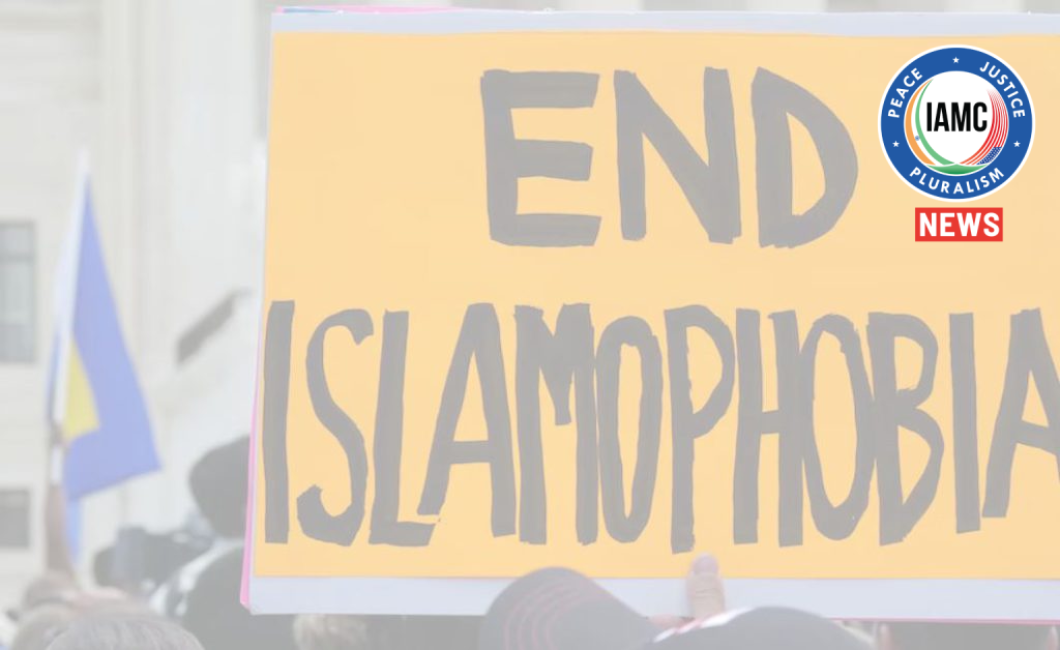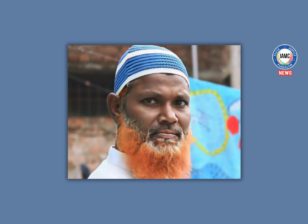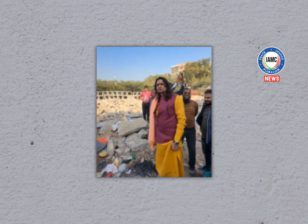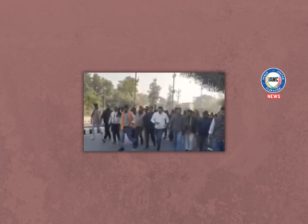UN Secretary General says India must protect minorities, journalists, activists
United Nations Secretary-General Antonio Guterres on Wednesday criticized India for its crackdown on human rights.
“As an elected member of the [UN] Human Rights Council, India has a responsibility to shape global human rights, and to protect and promote the rights of all individuals, including members of minority communities,” Mr Guterres said in a speech in Mumbai during a three-day visit to the country.
“India’s voice on the global stage can only gain in authority and credibility from a strong commitment to inclusivity and respect for human rights at home,” he said/ “Much more needs to be done to advance gender equality and women’s rights.”
He added: “I urge Indians to be vigilant and to increase your investments in inclusive, pluralistic, diverse communities and societies.”
Though Guterres praised India’s achievements 75 years after leaving British rule, Mr Guterres also said that the understanding that “diversity is a richness… is not a guarantee,” saying that “it must be nurtured, strengthened and renewed everyday.”
Citing Mahatma Gandhi and Jawaharlal Nehru, India’s first prime minister, Guterres said their values need to be guarded by “condemning hate speech unequivocally.” India must do this “by protecting the rights and freedoms of journalists, human rights activists, students and academics. And by ensuring the continued independence of India’s judiciary.
Pulitzer Prize awardee Kashmiri Muslim journalist stopped from US travel
Continuing its undemocratic discriminatory behavior towards Kashmir’s Muslims, the Indian government on Tuesday stopped award-winning Kashmiri photojournalist Sanna Irshad Mattoo at the Delhi airport from traveling to New York to receive the 2022 Pulitzer Prize.
The BBC reported immigration officials stopped Mattoo from boarding the flight “despite having a valid visa and ticket,” the second time in four months that she was barred from leaving India.
Earlier this year, Mattoo was awarded the Pulitzer Prize for feature photography for her coverage of the pandemic in India.
This case is the latest in a series of incidents where Indian authorities have stopped journalists and human rights defenders from traveling abroad.
In July, journalist Aakash Hassan, also a Kashmiri, was barred from boarding his flight to Sri Lanka without any reason. In March, India-based Washington Post columnist Rana Ayyub was stopped from boarding a flight to London, where she was to speak at an event about democracy and press freedom in India. A court later allowed her to travel.
In April, Amnesty International India Chair and human rights defender Aakar Patel was barred from traveling to the United States. In 2019, a senior Kashmiri journalist Gowhar Geelani was stopped from traveling to a journalists’ conference in Germany.
Court says protests against anti-Muslim citizenship law were terrorist acts
In a bizarre ruling reflecting a blatantly anti-democratic attitude, the Delhi High Court has said the protests held in 2019-20 against the discriminatory and anti-Muslim Citizenship Amendment Act (CAA) and the National Register of Citizens (NRC) were “prima facie [a] terrorist act.”
Earlier this week, in its order denying bail to Umar Khalid, a globally renowned Muslim youth leader, the Delhi High Court wrote: “The protest planned was not a typical protest normal in political culture or democracy but one far more destructive and injurious geared towards extremely grave consequences.”
Khalid has been falsely accused of masterminding violence in Delhi in February 2020 in which over 50 people, a majority of them Muslims, lost their lives. Various credible civil society reports, including one by Amnesty International and another written by a fact-finding team led by a former Supreme Court judge, have conclusively proved that that violence was engineered by Hindu extremist mobs with Delhi Police actively conniving and fanning the violence.
Shortly after the anti-Muslim CAA was enacted in December 2019, massive protests broke out across India, with overwhelming participation by Muslims. Prime Minister Narendra Modi’s Hindu supremacist government, as well as the Uttar Pradesh government of Hindu extremist Yogi Adityanath, responded with a brutal police crackdown, joined by Hindu extremist mobs.
The CAA has been widely criticized globally, including by US lawmakers. The United States Commission on International Religious Freedom (USCIRF) had called out India for unfairly “targeting those practicing their democratic right to protest.”
Muslim father-son fined $9,300 fine for damages during anti-Muslim violence
A 12-year-old Muslim boy and his father in Madhya Pradesh’s Khargone district have been asked to pay heavy fines on the false charges of damaging public property during violence. during a Hindu religious procession in April.
While the boy has been fined Indian Rupees 290,000 (USD 3,523), his father, Kalu Khan, has been fined Indian Rupees 480,000 (USD 5832) under the state’s new and controversial Prevention and Recovery of Damages to Public Property law. Khan’s Hindu neighbors had claimed he and his son had robbed and vandalized their home during the violence.
“My son is a minor. We were sleeping when the riots happened,” Khan has held.
The 12-year-old is being tried along with 270 adults, two-thirds of them Muslim. Under Indian law, a 12-year-old cannot be tried as an adult in any criminal proceeding in any Indian court and can only be tried by a juvenile justice board.
One person, a Muslim, was killed and at least 24 were injured in the anti-Muslim violence that broke out in Khargone. Ten houses were also burnt. Following the violence, authorities arbitrarily demolished homes and shops of Muslims. The selective demolitions were widely condemned by Muslim groups and rights bodies across India.
Three Muslims arrested in further crackdown against now-banned Muslim group PFI
The Kerala police have arrested three former local leaders of the now-banned Muslim group Popular Front of India (PFI) under the draconian Unlawful Activities (Prevention) Act (UAPA) for organizing protest rallies soon after the ban on the Muslim outfit.
The crackdown on PFI has been widely condemned by civil rights groups. So far, hundreds of Muslim men have been held under draconian UAPA across India in connection with the cases related to the banned Muslim group.
Modi’s Hindu supremacist government on September 27 banned the PFI, a prominent Muslim organization. Over 350 people have been arrested in dozens of raids by the National Investigation Agency (NIA) since then.




